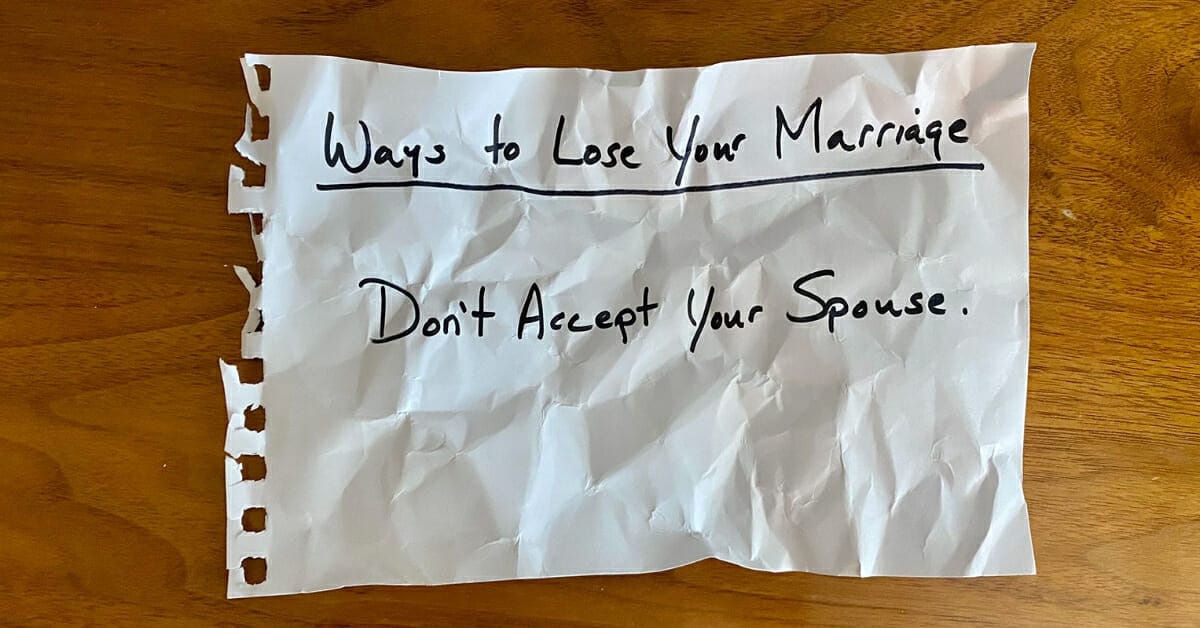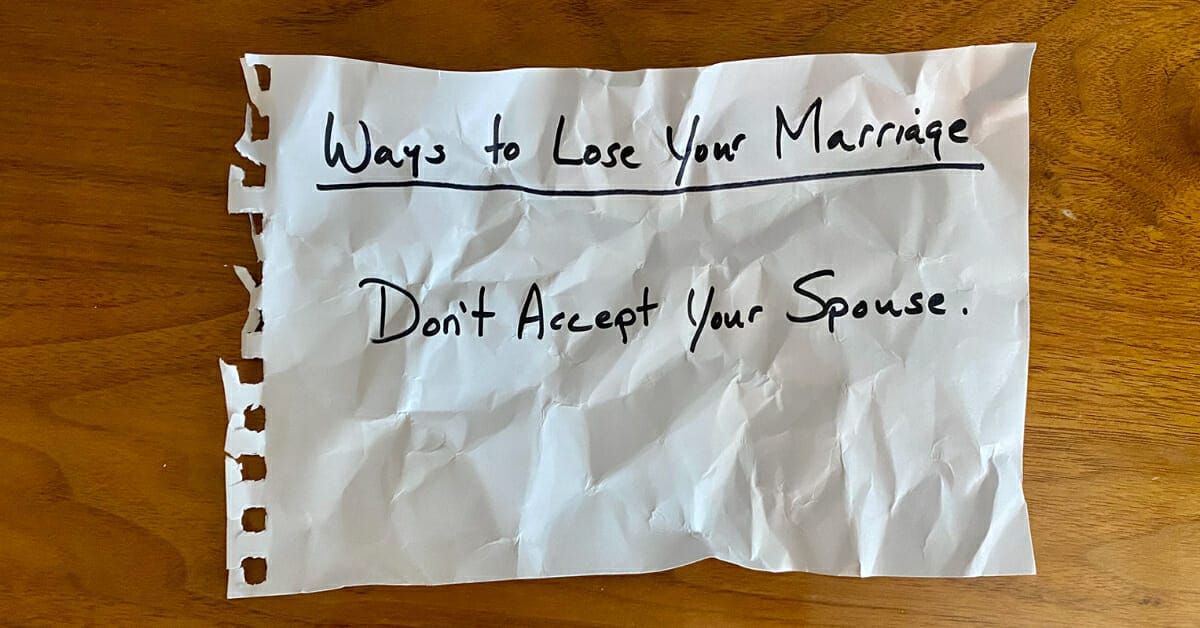“What happened to us. We use to talk all the time, have fun together, send each other love notes, and be up for anything. And now it’s like we’re just roommates!”
I hear this a lot in my counseling office. And if you’ve been married for any length of time, you’ve probably said some of the same things, or at least thought them. How does this happen?
FROM ROMANCE TO ROOMMATES
We all want to feel like we did early in our relationship. Those were times of great communication, good fun, and intense sex. But no one can keep up that intensity of relational focus, attention, and effort forever. Life starts to get in the way. There are jobs to focus on, kids to tend to, and a host of other things that demand attention.
Feeling like you’ve moved from romance to roommates is a common occurrence in marriage. Some of it is simply maturing and getting comfortable in your relationship, and some of it comes from trying to manage the ever increasing onslaught of responsibilities. So don’t beat yourself up if you’ve slipped into roommate status.
But no one wants to stay in roommate status forever. If left unaddressed, roommate status will slowly suck the life out of your marriage.
If you want to turn around the “just roommates” feel of your marriage, you need to start by understanding how you got there.
HOW YOU GOT THERE
Remember when you first became interested in this person you now call your spouse? Though I don’t know you personally, I know that when you became interested in your spouse, two things happened:
- You found yourself thinking about them more and more. They were increasingly on your mind. When you went to a new restaurant without them, you wondered if they would like it. You waited to seeing that new movie, because you didn’t want to see it without them. When out with friends, you found yourself wishing they were there too. They just began to occupy more and more of your thoughts.
- You worked hard to win them. You began to do whatever you could to capture their attention and affection. You would go to movies that didn’t interest you. Talk about whatever they wanted to talk about. Take them to their favorite restaurant…even though it wasn’t your favorite. You did whatever you could to draw them to yourself.
In short, the more you thought about them, the more your affection for them grew. And the more you affection for them grew, the harder you worked to earn their attention and affection.
But then, the two of you said, “I do,” the honeymoon phase ended, and things gradually started to change. And here’s why:
- When dating, you only had to be on your best behavior until the date was over. But now the date’s never over! You’re with each other all the time.
- You start to see each other’s less than flattering side and their less than attractive habits.
- You try to get each other to be like you remember, but this is met with bruised egos and defensiveness.
We start off working hard to earn the other’s attention and affection, but as the years pass, we shift to just expecting the other’s attention and affection. It’s this shift from earning to expecting that changes the marriage from romance to roommates.
HOW TO GET BACK
If your marriage seems to be stuck in roommate status, are you destined to live the rest of your life quietly staring out the restaurant window and substituting one-word answers for conversation? No!
If you’re in a roommate marriage, it doesn’t have to be a terminal diagnosis.
To find your way back from roommates to romance, you have to reverse the process that got you there. You have to quit expecting attention and affection and instead, start earning it again. How?
Think about them throughout your day.
If you’ve been in roommate status for a while, you may not find daydreaming about your spouse that appealing, so start by thinking about when you were dating or first married. Think about the reasons you married them in the first place. Think about your favorite memories with them. Go back through old photos to jump start those thoughts.
You’ll be surprised how this simple exercise will begin to warm your heart toward your spouse and rekindle a desire for them.
Then, take it to the next level and do something with those thoughts.
Get back in the habit of working to win them.
Think about how hard you worked in the beginning to get them to be interested in you. If you want to be more than roommates, you have to take on that same mentality and work like you did when you were dating:
- Show interest in the things that interest them.
- Look them in the eyes and listen closely when they talk.
- Find ways to have fun and laugh together.
- Leave them sweet notes and texts.
- Meet their needs, even if they’re not your needs.
- Spend more of your free time together than separate.
You may be thinking, “It was easy to do these things early in our relationship, because we were so in love. But now those feeling aren’t there. Doing those things now would seem contrived and hypocritical.”
But, you’re just in a different stage of your relationship now. Before, your feelings drove your actions. Now your actions must drive your feelings. And eventually, your feelings will kick in and take a bigger roll in driving your actions. It’s a loop. Feelings fuel actions and actions fuel feelings.
This is how you get out of roommate status.
A FINAL WORD…
So, I know that In the beginning, romance seemed easy, but it’s actually because we put a lot of work into it. Then, we stop working and we gradually slide from romance to roommates. Moving back to romance will also take work. But the difference is…now we’re not working to get them. We’re working to keep them!
In the interest of full disclosure, I’ve not always been the best at this. I’m highly driven by my emotions, and when those loving emotions aren’t there I tend to withdraw rather than move closer with loving actions. (Just ask my wife.) So as I write these words, I’m preaching to myself first and foremost. And now that I’ve put this out there in public, my wife will be watching to see if I step up my game.
So, here’s hoping we all keep finding our way back from roommates to romance, because we’re all in this together.










